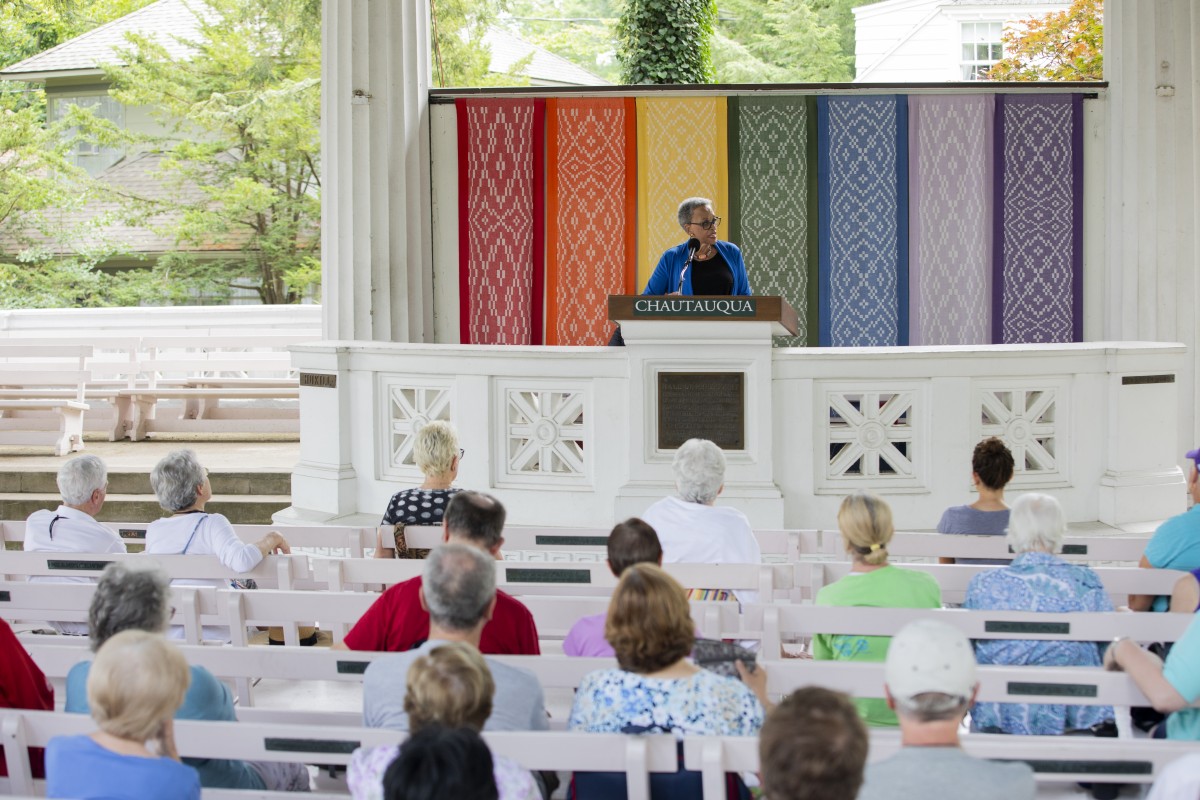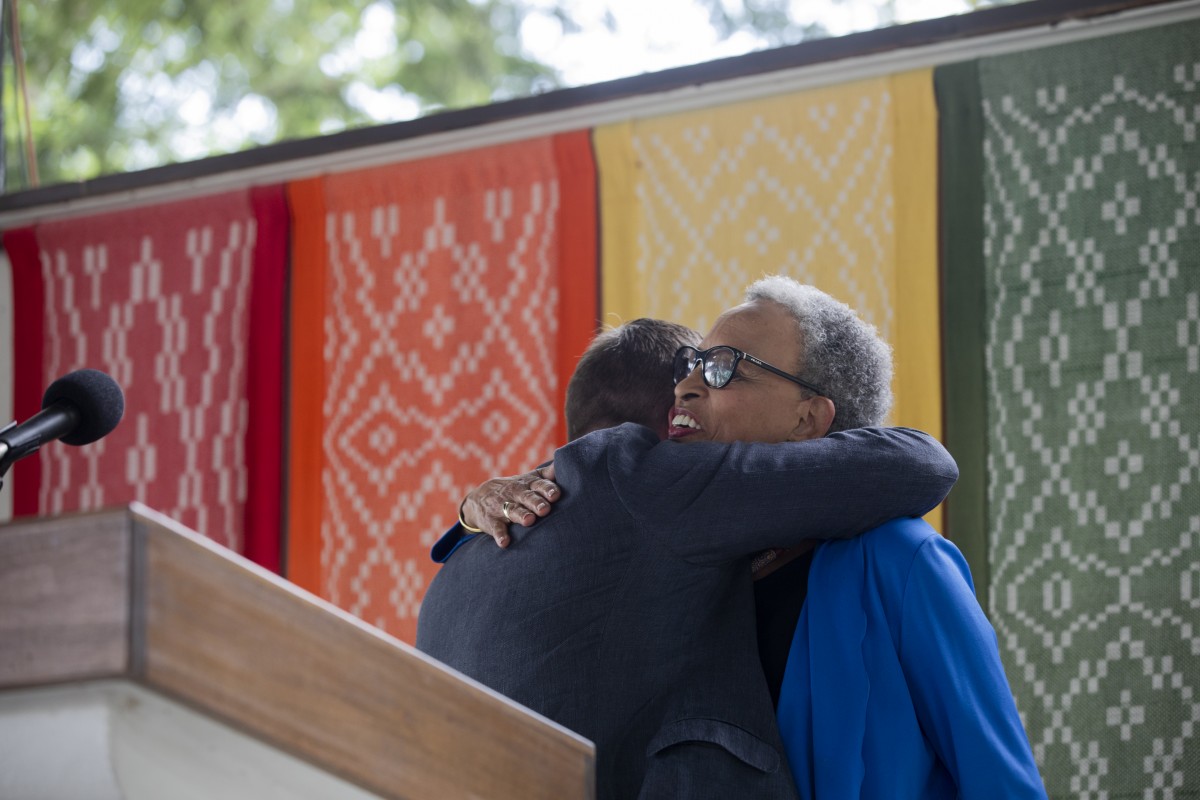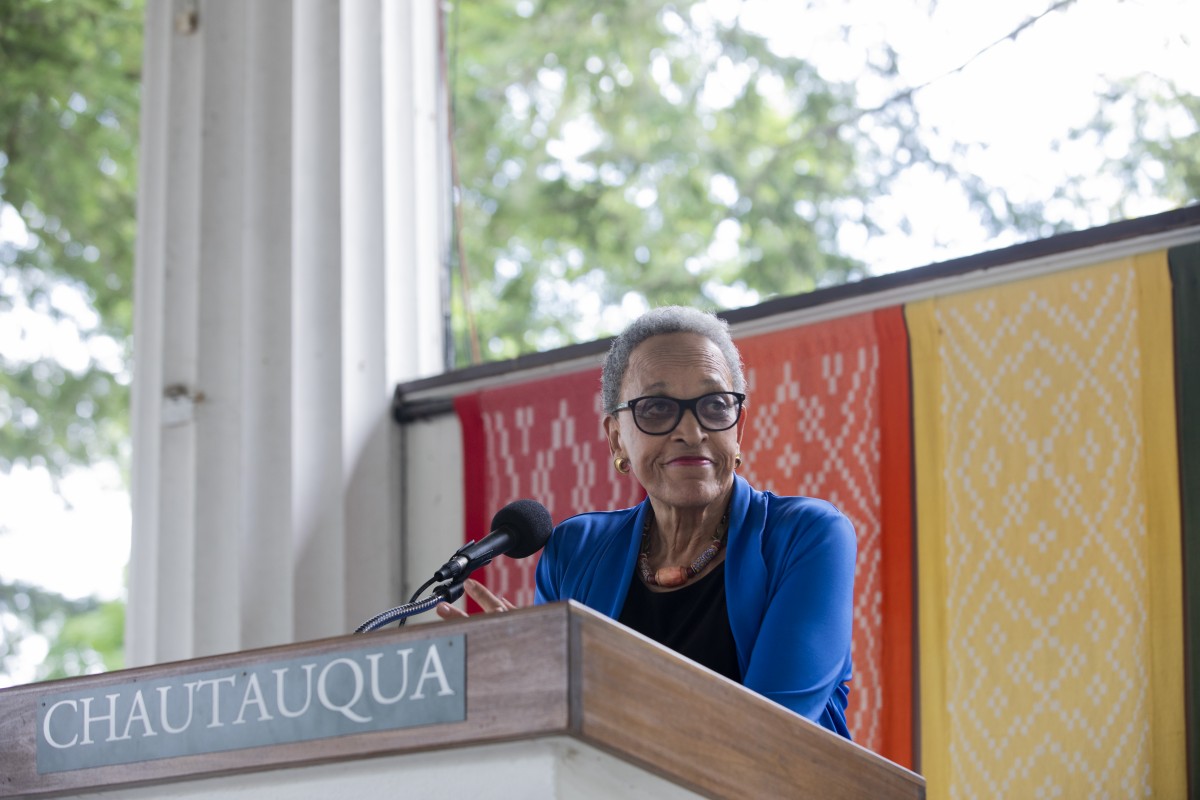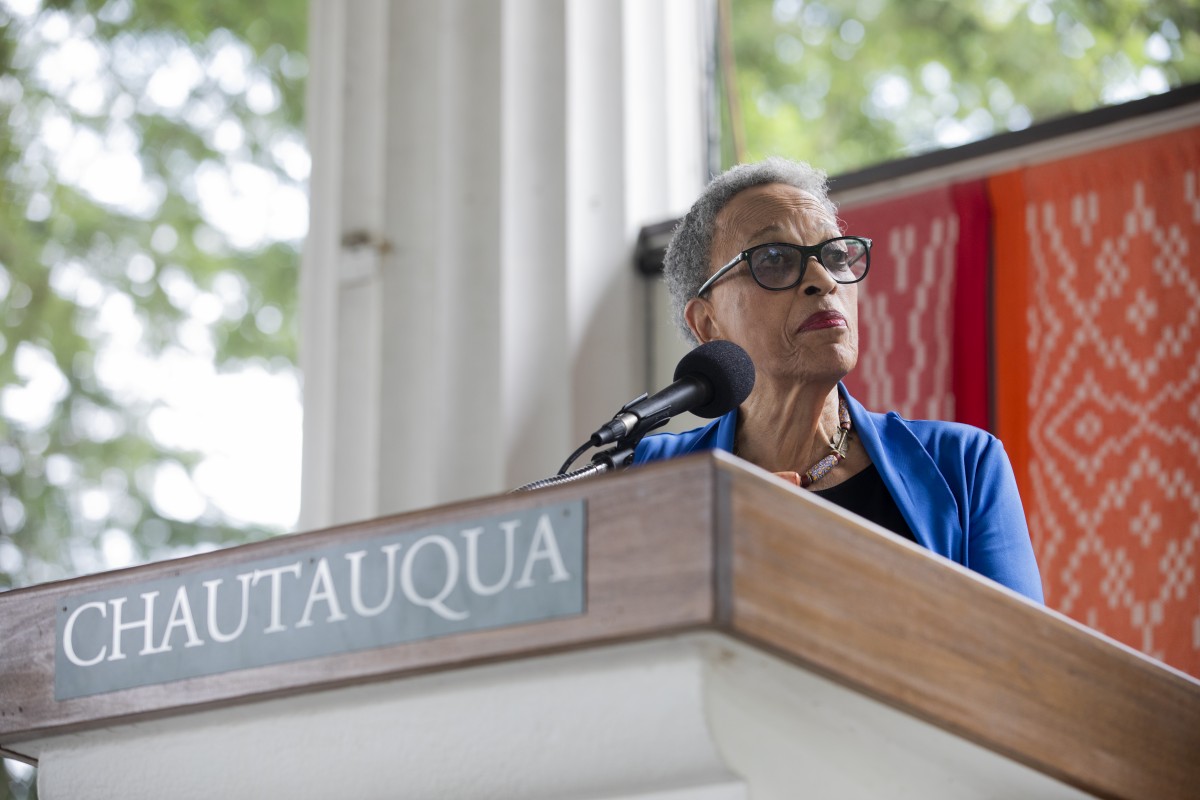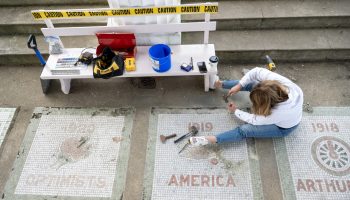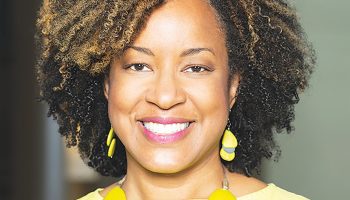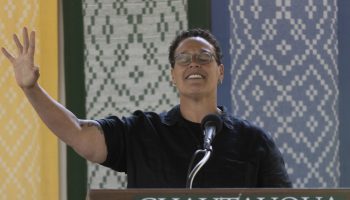Johnnetta Cole has studied a variety of disciplines throughout her life, from African-American studies to women’s issues. However, at her core, she considers herself an anthropologist, a position she believes has enlightened her perspective on world issues.
At 12:30 p.m. last Saturday, July 14, in the Hall of Philosophy, Cole spoke on behalf of Chautauqua’s new strategic plan, which includes a movement toward diversity and inclusion. She began the discussion by recognizing her anthropologist roots, greeting Chautauquans as “my brothers and sisters.”
“I’m sure you’ve noticed that I greeted you with kinship terms,” she said. “Although there are a couple of individuals here I am very close to, as far as I can tell, I am not blood-related to anyone who is here. So why am I using that language? Because I’m an anthropologist … and I know that kinship is not just about biology. Kinship is about shared values; kinship is about shared dreams.”
Cole, who is a principal consultant at Cook Ross consulting firm, has an extensive background in education and diversity. She is the recipient of more than 50 honorary degrees and was the first African-American woman to serve as president of both Spelman College and Bennett College.
To preface her beliefs on diversity and inclusion, she shared statistics that she believes reflect nationwide intolerance.
“You share with me the knowledge that, across our nation, we are witnessing the resegregation of our schools and the growing gap between those who have economic stability and those who do not,” she said. “There is overwhelming evidence that we have a mighty long way to go to arrive at a more perfect union in these our United States.”
Specifically, she mentioned statistics relating to discrimination against women and people of color in the workplace.
“Today in our American corporations, 93 percent of CEO’s are white men,” she said. “Women continue to earn less than men, to be exact, 80.5 cents for every dollar a man earns for doing the same job. African-American workers are paid 65 cents compared to a dollar that white workers earn for doing the same job.”
In a place like Chautauqua, known for its celebration of artistic expression, she also mentioned that less than 5 percent of those in leadership roles at museums are people of color. Cole, who served as director of the Smithsonian Institution’s National Museum of African Art, is disheartened by this statistic.
“It is as if only 5 percent of people of color have any connection to desire to express human creativity,” she said.
But as someone who has spent her lifetime working both as a professor and in various leadership roles, Cole believes statistics are not enough to provoke change.
Cole said the process of making communities like Chautauqua more diverse begins with recognizing personal biases, a reality that is unavoidable for all human beings.
“I strongly believe that each of us must own our unconscious biases,” she said. “When these biases are not mitigated against, know that they grow like weeds into systems of inequality such as racism and sexism.”
To demonstrate the influence of unconscious bias, Cole offered the example of the notorious lack of women in American orchestras. To combat this problem, orchestras began implementing blind auditions, meaning there was a curtain between the individual trying out and the judges.
Still, women were not being equally chosen until an observer realized the problem: high heels.
“The click of high heels triggered an unconscious bias,” Cole said. “When the carpeting was laid down and you couldn’t hear the click of the heels, more women were being chosen.”
Although shoe choice is often an overlooked difference between men and women, it demonstrated the ability of unconscious bias to reinforce inequality. Such problems, Cole said, can hopefully be avoided with unconscious bias training.
“It’s called training, but it’s called learning, and it’s called redoing how we act,” she said. “Unconscious bias training has become popular, and I think it should be.”
But Cole also recognized another dividing force embedded in human nature, which she said is the desire to belong. While it is important to be surrounded by familiarity, it can also pit groups against one another.
“This need to belong can cause deep divisions between groups of people,” she said. “Indeed, this need to belong can lead one group to see itself in opposition of other groups, like in terms of their race or religion.”
To fight this divisiveness and reach across lines of difference takes courage, Cole said. To help give Chautauquans strength and motivation to push for diversity, she provided three reasons: the business reason, the moral imperative and her personal reason, “the joy reason.”
The business reason, Cole said, is a common incentive.
“It says that when there is a group of people in the workplace who are diverse, they bring with them their various experiences, and so greater innovation is possible,” she said.
Moral imperative is an internal motivator that pushes diversity simply because “it is the right thing to do.” But the joy reason, Cole’s personal mantra, captures what she believes is the essence of diversity and inclusion. Breaking barriers of division is both enlightening and “joyous.”
“For those of you who have reached across lines of difference, you know what I’m talking about,” Cole said. “Even if it’s as simple as eating the foods of a different culture, inevitably what happens is that you not only begin to understand the other reality, you get a better look at your own. Anthropologists capture this when we say, ‘It’s scarcely the fish that discover water.’ ”
To conclude her talk, Cole left the audience with a short story about an older woman teased by a young boy. The boy holds a bird behind his back and asks the old lady, “Is it dead or alive?”
Her response, though simple, is the message Cole hoped to impart: It’s in your hands.
“Do this work of bringing far greater diversity, equity, accessibility and inclusion to this community,” she said. “It’s in your hands. It will be a privilege for me, in any small way, to work with you.”


